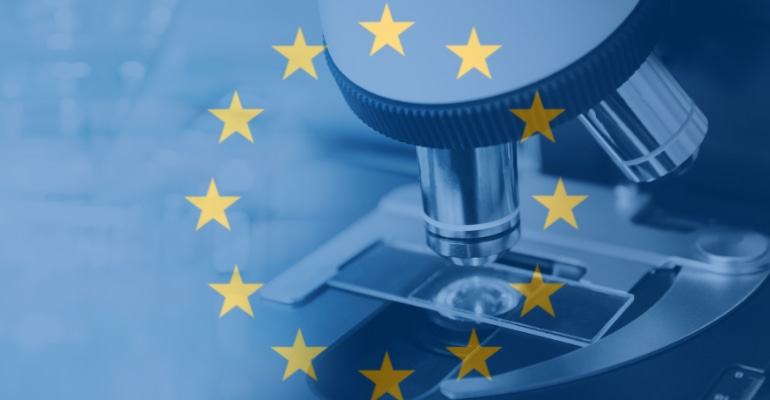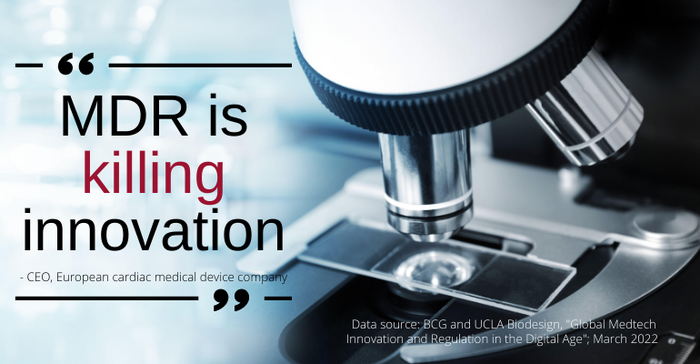Veranex Strengthens Capabilities in the MDR Era of Medtech
A new M&A deal could help medtech companies navigate challenges associated with the European Union's Medical Device Regulation (MDR) and In Vitro Diagnostic Regulation (IVDR).
September 28, 2022

For decades it was a widely accepted strategy to bring new medical devices to the European market first. Simply put, obtaining a CE mark was faster, cheaper, and more predictable than getting regulatory approval anywhere else. Those days are gone, however, and many medical device professionals are blaming the new Medical Device Regulation (MDR) in Europe, with some medtech professionals going so far as to say the new MDR is killing innovation in Europe.
Now, a new M&A deal could help strengthen regulatory affairs, clinical development, and quality assurance services and capabilities for medtech companies competing in the European market.
Veranex, a Raleigh, NC-based firm serving the medtech industry, has acquired Medidee, a Lausanne, Switzerland-based medtech consultancy. Financial terms of the deal were not disclosed, but Veranex says the aquisition will improve its ability to navigate challenges associated with the European Union's MDR and in vitro diagnostic regulation (IVDR).
“Our acquisition of Medidee significantly expands our European footprint while also materially expanding the scale and scope of the clinical studies we can manage,” said Veranex CEO David Dockhorn. “The combined organization offers offices and expertise across Europe, the U.S., and Asia, augmenting our ability to help medtech innovators achieve FDA and CE mark approvals and uninterrupted market access for new as well as proven medical technologies that advance patient care.”
Medidee has 11 locations across Europe, India, and Asia-Pacific, and is considered one of the top three medical device consultancy firms in Europe. In addition to its leadership in key areas such as digital health, machine learning, and cybersecurity, Medidee also offers expertise in clinical research exclusively focused on medical devices and in vitro diagnostics.
Is Europe's MDR hurting innovation?

A survey of MedTech Europe members conducted during the month of April has yielded four startling conclusions about the implementation of the Medical Device Regulation in the European Union. The survey was commissioned by the Medical Device Coordination Group Task Force on Certification Capacity Monitoring to assess the availability of medical devices in 2022 in connection to the MDR implementation. The responses by the companies that participated in the survey lead to the following conclusions:
MDR certificates have not been issued yet for more than 85% of the more than 500,000 devices previously certified for market in the European Union.
54% of survey respondents said they do not intend to transition some of their portfolio to the MDR. All product categories are impacted by potential device discontinuations, MedTech Europe noted.
Small and medium medical device companies face more challenges in MDR implementation than larger companies. At least 15% and up to 30% of small and medium companies still have no access to an MDR-designated notified body. For small and medium medical device companies, progress to MDR certification is slower than average, the survey showed.
MDR is currently a disincentive against launching medical device innovation in the European Union, MedTech Europe noted. About 50% of respondents are de-prioritizing the EU market (or will do so) as the geography of choice for first regulatory approval of their new devices.
The full report can be found here.
MDR ended the days of Europe-first medical device innovation
These conclusions are not at all unlike the report published earlier this year by the Boston Consulting Group (BCG) and UCLA Biodesign, which also shows that the new regulation has slowed the pace of medical device innovation in the European Union. In other words, gone are the days of Europe-first medical device innovation.
That report was based on a survey of 104 company leaders who provided commentary and data on 105 new medical devices, technologies, and software of any risk class that have achieved 510(k) clearance or FDA approval, or have attained a FDA breakthrough device designation. Many of the products also sought EU CE mark, Japan PMDA (Pharmaceuticals and Medical Devices Agency), or China NMPA (National Medical Products Association) approval in the period from 2010 to 2021. Most (85%) of the technologies represented are new products in their respective portfolios rather than line extensions or updates, the authors note, and 60% of them incorporate digital technology.
About the Author(s)
You May Also Like




